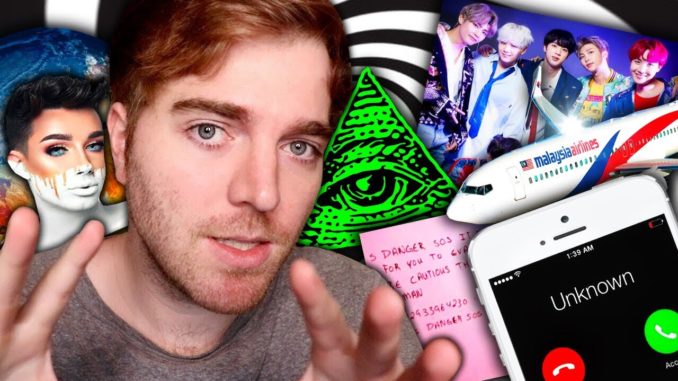
If you believe some of the conspiracies discussed by Shane Dawson you are more likely to commit a crime, according to a new UK study.
If you believe that 9/11 is an inside job or that Justin Bieber is a shapeshifting reptilian – two conspiracy theories Shane Dawson has covered on his YouTube channel – you are more likely to engage in anti-social behavior.

BYPASS THE CENSORS
Sign up to get unfiltered news delivered straight to your inbox.
You can unsubscribe any time. By subscribing you agree to our Terms of Use
Latest Video
Nypost.com reports: That’s the main finding of a team of psychologists from the UK’s Staffordshire University and the University of Kent, who investigated the wider impact these paranoia-fueled fringe beliefs can have on behavior.
“Our research has shown for the first time the role that conspiracy theories can play in determining an individual’s attitude to everyday crime,” study co-author and Kent professor Karen Douglas said in a statement. “It demonstrates that people subscribing to the view that others have conspired might be more inclined toward unethical actions.”
With contemporary conspiracy theories targeting everything from myths surrounding the Mueller report to the chilling “secret” behind Disney’s “Frozen,” this cultural phenomenon is certainly ripe for clinical exploration.
As such, the new study measured participants’ “belief in general notions of conspiracy” as well as how much they agreed with specific theories (“There was an official campaignby MI6 to assassinate Princess Diana”). Those inclined to believe the theories were “more accepting of everyday crime,” such as demanding a refund for no appropriate reason.
In addition, exposure to conspiracy theories was found to make people more apt to engage in low-level criminal activity. Researchers found that this tendency was “directly linked to an individual’s feeling of a lack of social cohesion or shared values, known as anomie.”
For the non-psycholinguists out there, anomie is defined as “the lack of the usual social or ethical standards in an individual or group.”
Or, as co-author Dan Jolley of Staffordshire put it, “People believing in conspiracy theories are more likely to be accepting of everyday crime, while exposure to theories increases a feeling of anomie, which in turn predicts increased future everyday crime intentions.”


